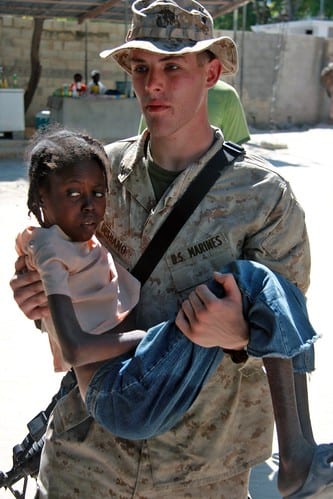There is more than one way of responding other people’s tragedy.
One way is to look with compassion on those who suffer, to pray for them, and to offer them assistance. Another response is to look heavenward and give thanks to God that we have not suffered such calamity. We recognize our own vulnerability to tragedy and reason, “There, but for the grace of God, go I.” These two responses are appropriate for God’s children and probably should be combined. We should be grateful for escaping suffering while offering help to those who are not so fortunate.
There is a third response to other people’s tragedy that is totally inappropriate for any member of the human race. This common response is to look at other people’s suffering and to draw this conclusion. “They must be doing something wrong and I must be doing something right, since tragedy befell them and blessing befell me.”
In other words, instead seeing God’s blessing as obligating us to share with those in need, we interpret it as God’s favor to us and His curse upon others. We not only withhold our blessings from those who are desperate for help. We also interpret their misfortune as God’s displeasure on them and use that as justification for not helping them as well.
Parable of Lazarus and The Rich Man
I suspect this was the attitude of the rich man in Luke 16:19–31, who felt perfectly comfortable with a starving beggar at his gate. “God has obviously withheld His blessing from that poor beggar. So why should I help him?”
But when Jesus told the story He presented a different side to the poor beggar’s tragedy. The beggar, we are told, is known by name to God. His name, Jesus tells us, is Lazarus. The rich man, without a name, is a stranger to God. When Lazarus dies, angels carried him into paradise. When the rich man dies he descends to Hades. Lazarus receives comfort following his life of suffering. The rich man receives torture in flames after his life of selfish pleasure.
As it turns out, the rich man’s interpretation of his circumstances could not have been more wrong. Lazarus was not under God’s curse, but was under humanity’s neglect and oppression. But God in His grace was turning Lazarus’ pain into eternal gain. Lazarus, from God’s eternal perspective, was the blessed one. The rich man’s wealth, however, was a curse to him. For it kept his heart earth-bound and his treasure perishable (Matthew 6:19–21). His only deliverance would have been to open his heart to the suffering and use his riches to help those in need (Luke 16:9–13; 1 John 3:17). According to what Jesus said in Matthew 25:34–40, by helping Lazarus the rich man would have been helping Jesus Himself. Instead, he left Jesus to starve by the roadside.
Other Stories

There is another side to tragedy which we seldom comprehend. When the Babylonian king, Nebuchadnezzar, deported Jerusalem’s king and all her best artisans and craftsman in 597 BC, those left behind considered themselves the “lucky ones.” They believed God’s judgment had befallen the young King Jehoiachin (AKA Jeconiah and Coniah) and the other captives. In contrast, they saw themselves as blessed by God since they were left behind in the relative safety of Jerusalem.
But God gave the prophet Jeremiah a vision which told the real story (Jer. 24:1–10). God showed Jeremiah two baskets of figs. One of them was filled with luscious ripe figs. The other was filled with worthless, rotten figs. The “unfortunate” captives, God told Jeremiah, were the good figs. They were being saved from the destruction which God would bring upon Jerusalem. The “fortunate” citizens who were left behind were the rotten figs who were fit only for destruction.
Let’s be careful when we feel like interpreting other people’s tragedy and suffering. Maybe it’s God’s judgment or discipline. More likely God is preparing those who suffer for eternity with Him. Most likely, however, the tragedy of others is God’s test upon us—to see how we will respond. Will we redeem ourselves by showing mercy and helping the victims of tragedy? Or, will we condemn ourselves by passing judgment on the suffering and in the process, reject Jesus Christ?
“Those who mock the poor insult their Maker; those who rejoice at the misfortune of others will be punished” (Prov. 17:5).
PRAYER:
Dear Father in heaven, please open my eyes to see Jesus in the face of every suffering person. Please awaken my conscience to feel the pain of others. And help me to do all in my power to help them. Amen.
In article photo: Marine rescues Haitian girl by the U.S. Marines licensed under U.S. Govt. Work







